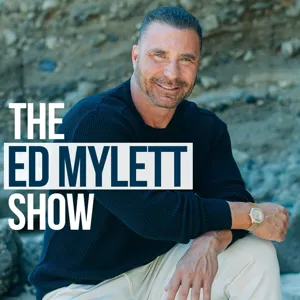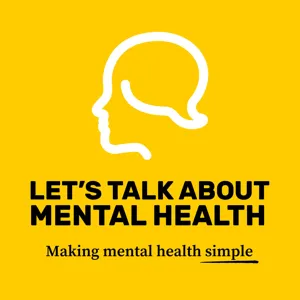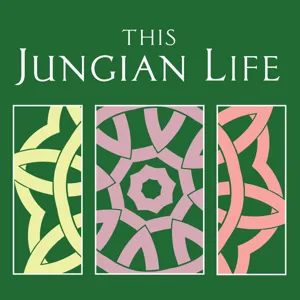Podcast Summary
Understanding ourselves and others through self-awareness: Self-awareness leads to greater fulfillment, stronger relationships, increased creativity, confidence, and better communication skills. Observe ourselves and reactions to situations for clearer understanding.
Self-awareness is a powerful tool that allows us to understand ourselves and how others perceive us. It leads to greater fulfillment, stronger relationships, increased creativity, confidence, and better communication skills. However, our brains don't always accurately process information, so it's essential to actively work on achieving self-awareness. According to Tasha Uhrick, there are two types of self-aware people: those who think they are self-aware and those who genuinely are. The first step to becoming more self-aware is to start observing ourselves and our reactions to situations, rather than just thinking about ourselves. By doing so, we can gain a clearer understanding of who we are and how we fit into the world.
Shift from 'why' to 'what' questions for deeper self-understanding: Asking 'what' questions during self-reflection can lead to more accurate and insightful self-understanding compared to 'why' questions.
Self-awareness, the ability to understand ourselves and how we're perceived by others, is essential for personal growth and success. However, the way we approach introspection, or self-reflection, can greatly impact its effectiveness. While many assume that introspection through asking "why" questions is the key to self-awareness, research shows that this approach often leads to inaccurate or superficial insights. Instead, asking "what" questions, which are more action-oriented and focused on facts, can lead to deeper and more accurate self-understanding. This small shift in approach can help us gain valuable insights about ourselves, our values, patterns, and impact on others, ultimately leading to greater self-awareness and overall well-being. So next time you're reflecting on yourself, try asking "what" questions instead of "why" ones. And don't forget to check out "Who Smarted" podcast for some family-friendly learning and entertainment while you're at it!
Understanding reactions and emotions for personal growth: Self-awareness leads to increased fulfillment, success, stronger relationships, and emotional intelligence. It involves understanding reactions and emotions, self-compassion, and acceptance of imperfection. Self-awareness is a journey, not a destination, and continuous learning is key.
Self-awareness is a crucial skill for personal growth and success in all areas of life. It leads to increased fulfillment and success at work, stronger relationships, and even helps raise more mature children. Being self-aware means understanding our reactions and emotions, rather than putting a story on them. It's a meta skill that enhances our ability to authentically express ourselves, influence others, and practice emotional intelligence. Self-awareness also involves self-compassion and acceptance of imperfection. The benefits of self-awareness are significant, and it's always better to know and decide for ourselves rather than being in the dark. Self-awareness is a journey, not a destination, and we can all strive to be better students of it. The speaker's perspective on self-awareness has evolved from believing they were highly self-aware to recognizing their own imperfection and commitment to continuous learning.
Three simple questions for self-awareness: Daily check-ins with questions about what went well, what didn't, and how to improve tomorrow can increase self-awareness effectively.
Self-awareness is a valuable yet complex journey that often begins with recognizing the need for personal growth. However, common assumptions about how to achieve self-awareness can be misguided. A practical and effective tool for increasing self-awareness is the daily check-in, which involves asking oneself three simple questions: what went well today, what didn't, and how can I improve tomorrow. Self-awareness doesn't necessarily require extensive journaling, but it can be a helpful tool when used thoughtfully. However, journaling can become less insightful if one becomes overly focused on analyzing every experience or ruminating on negative emotions. Instead, a balanced approach that considers both emotions and rational thoughts can lead to the most valuable insights. I personally have found daily journaling to be beneficial in my own self-awareness journey, but it's important to remember that what works for one person may not work for another. Ultimately, self-awareness is a continuous process of learning and growth, and there are various tools and approaches that can help us along the way.
Shifting Perspectives: A Powerful Technique for Objectivity and Clarity: Shifting perspectives can help us gain objectivity and clarity in challenging situations, improve self-awareness, and potentially find new solutions. Try writing from a different perspective to unlock new insights and growth.
Shifting perspectives, whether through creative writing or neutral third-party analysis, can help us gain objectivity and clarity in challenging situations. This simple yet effective technique, backed by science, can be particularly useful in managing conflicts and improving self-awareness. By stepping outside of our own perspective, we can gain a newfound appreciation for the situation and potentially find solutions that were previously elusive. So next time you find yourself stuck in a ruminative thought pattern, try writing from a different perspective – it might just be the key to unlocking new insights and growth.
Seeking honest feedback from others is essential for self-awareness: Recognizing our own incompetencies and seeking honest feedback from others are crucial for personal growth. Objective measures and subjective feedback offer different perspectives on our strengths and weaknesses, and both types of self-awareness are necessary for continuous improvement.
Self-awareness is crucial for personal growth, but recognizing our own incompetencies and seeking honest feedback from others are essential components of this process. Delusions about ourselves can hinder our progress, so it's essential to seek the truth about ourselves, both objectively and subjectively. Objective measures of success can provide data on our accomplishments, while subjective feedback from trusted individuals can offer insights into how we are perceived and how we can adapt our approaches to be better. External self-awareness, which involves understanding how we are perceived by others, is just as important as internal self-awareness, which refers to knowing who we truly are. Both types of self-awareness are interconnected and play a vital role in personal growth. It takes courage to seek feedback and face our weaknesses, but the rewards of self-awareness and continuous improvement are worth the effort.
Seeking feedback from others for external self-awareness: Choose the right people for honest feedback, identify supporters, and ask explicitly for insights to complement internal self-awareness.
Developing self-awareness involves looking at ourselves from different perspectives, both internally and externally. Internal self-awareness comes from reflecting on our own values and principles, while external self-awareness comes from seeking feedback from others. To get the most accurate and helpful feedback, it's essential to choose the right people - those who support us and are honest with us. By identifying these individuals and explicitly asking for their feedback, we can gain valuable insights into how we're living out our values and areas for growth. Remember, both internal and external self-awareness provide important perspectives on the same thing, and they can complement each other in our personal and professional development.
Seeking feedback for personal growth and creative process: Choose the right people for constructive feedback, communicate clearly what's desired, consider the number of feedback providers, stay self-aware, and ask the right questions for valuable insights.
Seeking feedback to become the best version of ourselves is a crucial process, and it's essential to choose the right people and clearly communicate what kind of feedback we're looking for. This parallel can be seen in the creative process, where we select specific individuals who can provide constructive feedback on our work. The number of feedback providers matters, as having too few may not provide diverse perspectives, while having too many can make it difficult to sustain the behavior. Self-awareness is vital in this process, as we should identify the areas we want to improve and the type of person we aspire to be. Furthermore, our lives and goals may change, and being self-aware can help us adapt and adjust our focus accordingly. Ultimately, we are in control of our feedback journey, and asking the right questions can lead us to valuable insights.
Understanding Ourselves Better: The Power of Self-Awareness: During challenging times, focus on self-awareness through the 7 pillars of insight, ask specific questions, and seek feedback to grow, be kinder to ourselves and others.
During challenging times, it's essential to be kinder to ourselves and see our responsibilities not as obstacles but as opportunities to grow. External feedback can provide valuable insights, but internal self-awareness is crucial. The 7 pillars of insight, including values, aspirations, patterns, reactions, strengths and weaknesses, and impact on others, can help us understand ourselves better. Asking specific questions about these pillars and seeking feedback from others can lead to profound self-awareness. Personally, I'm striving to give more grace to others during the pandemic and let go of grudges. Remember, self-awareness is a journey, and every step counts.
Exploring Self-Awareness with Tasha Europe: Understanding how others see us and how we see ourselves is crucial for personal growth and effective communication. Reflect and improve self-awareness for better personal and professional relationships.
Self-awareness is a valuable asset in life and essential for personal growth. The conversation with Tasha Europe emphasized the importance of understanding how others perceive us and how we perceive ourselves. The guests on the show, including Avi Manjouda, Daniela Balarezo, Frederica Elizabeth Josephov, Anne Powers, Cara Newman, Jocelyn Gonzalez, Pedro Rafael Rosado, and Sandra Lopez Monsalve, all brought unique perspectives on self-awareness. The show is supported by Odoo, an affordable all-in-one management software, and Slack, where work happens with all your people, data, and information in one place. By increasing our self-awareness, we can become better humans and more effective in our personal and professional lives. So, take some time for reflection and consider how you can improve your self-awareness today.






